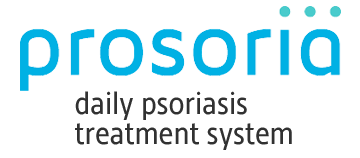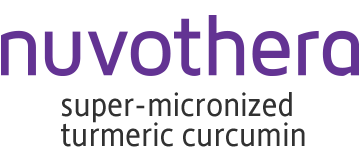
Psoriasis is the most prevalent immune-mediated disease in the country, affecting 7.5 million Americans. Up to 30 percent of that population will also develop psoriatic arthritis, which can have a severe impact on your quality of life. Symptoms of both psoriasis and psoriatic arthritis can go through cycles of flare-ups that alternate with periods of remission. While these psoriatic arthritis flare-ups are hard to predict, they are most often caused by a trigger of some kind. And while there are many treatment plans available for psoriasis, let’s take a closer look at psoriatic arthritis, what makes it different from regular psoriasis, and what causes symptoms to flare up.
Common Psoriatic Arthritis Symptoms
Psoriatic arthritis is characterized primarily by pain, stiffness, and swelling in the joints. These symptoms can affect just about any joint or tendon in your body, including your fingertips and toes and even your spine, which can make general movements painful and severely limit your range of motion. The symptoms themselves can be mild and progress slowly or be more severe. The general signs and symptoms of psoriatic arthritis also include:
- General fatigue
- Stiffness and tiredness in the morning
- Changes in your nails, including pitted nails or nails that separate from the nail bed
- Redness and pain in the eyes
Although your joint pain and swelling issues may crop up before any skin symptoms, most people get psoriasis first, which then develops into psoriatic arthritis. This means that, prior to your stiff, swollen joints, you will likely have skin lesions that appear dry, scaly, and red and are often itchy or painful.
Psoriatic arthritis can affect joints on just one side or both sides of your body. While it can be easily mistaken for rheumatoid arthritis, psoriatic arthritis is more likely to be accompanied by:
- Foot pain – Psoriatic arthritis can cause pain and swelling at points where your bones contact your tendons and ligaments, including the back of your heel and the sole of your foot.
- Swelling fingers and toes – Psoriatic arthritis can also cause painful swelling in your fingers and toes, resulting in deformities.
- Back pain – Psoriatic arthritis can result in spondylitis, which refers to inflammation of the spinal column. This can result in stiffness in the neck, lower back, and the joints between your spine and pelvis.
What Causes Psoriatic Arthritis?
Experts understand that psoriatic arthritis is an immune-mediated disease, which refers to diseases wherein the immune system attacks healthy cells and tissue. With psoriasis, an abnormal immune response causes an overproduction of skin cells, resulting in the characteristic lesions. This same immune response can also cause inflammation and ongoing damage to your joints, resulting in psoriatic arthritis.
Immune-mediated diseases still remain a bit of a mystery. It’s still not clear why the immune system turns on its own healthy tissue. Studies do suggest that psoriatic arthritis may be hereditary. For instance, we do know that about a third of all people with psoriasis also have a family member who also has the disease. Certain environmental factors may also increase your risk of developing an immune-mediated disease, but experts still require research to determine any specific causes.
Psoriatic Arthritis Triggers
Much like psoriasis, psoriatic arthritis alternates between periods of flare-ups and remission or improvement. Flare-ups are often caused by environmental triggers, but no two people necessarily have the same triggers. What may cause flare-ups for one person may not have any effect on you. Doctors also aren’t sure of all the potential triggers out there, but here are some of the most common triggers for psoriatic arthritis flare-ups.
Stress
While it might seem based entirely on mood and psychology, stress can have some serious effects on your physiology. Stress hormones can increase inflammation, and more inflammation spells more skin lesions and more swelling in the joints and tendons, resulting in more pain.
Physical trauma
Cuts, bruises, scrapes, scratches, and even sunburns can trigger psoriasis and psoriatic arthritis flare-ups. This is known as the Koebner effect and is a result of the abnormal inflammatory response at the root of psoriasis.
Illness
Just about anything that can affect your immune system will invariably have an effect on your psoriasis and psoriatic arthritis. This includes general illnesses, including strep throat, the flu, and the common cold. Strep throat has particularly been linked to guttate psoriasis, but you may experience flare-ups after bronchitis, ear infections, tonsillitis, or any sort of respiratory infection.
Cold, Dry Weather
Cold, dry weather can dry out your skin, which can make psoriatic arthritis symptoms worse and harder to manage. Similar to rheumatoid arthritis, damp, cold weather and changes in barometric pressure can exacerbate the stiffness, pain, and swelling of your psoriatic arthritis.
Smoking
Nicotine actually alters the immune system, which can spell trouble for your psoriatic arthritis. Tobacco smoke can also cause cellular damage, further contributing to your psoriasis.
Psoriatic arthritis can be an immense pain, but it doesn’t have to be an obstacle to living your life. Learn about your treatment options that can help you manage your symptoms and take back the reins of your life.
Sources:
- https://www.psoriasis.org/content/statistics
- https://www.psoriasis.org/about-psoriatic-arthritis
- https://www.mayoclinic.org/diseases-conditions/psoriatic-arthritis/symptoms-causes/syc-20354076
- https://www.verywellhealth.com/how-do-you-manage-psoriatic-arthritis-triggers-4176414
- https://www.psoriasis.org/about-psoriasis/causes

